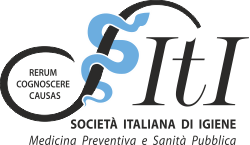The hypothesis
Some anti-vaccinators claim that it is necessary to carry out genetic screening on all children prior to vaccinating in order to avoid adverse reactions. Mainstream medicine is therefore accused of neglecting to use this preventive strategy.
Scientific elements that refute the usefulness and necessity of genetic screening prior to vaccination
Although adverse reactions following vaccination are very rare, despite the millions of people who are vaccinated worldwide every year, researchers and health authorities have begun to wonder if there are certain genetic differences between those who develop serious adverse reactions to the vaccine and those who do not1.
Since 2008, the American CDCs (Centers of Disease Control and Prevention), responsible for monitoring the safety of vaccines authorised in the United States, have funded research, almost all of which is still ongoing, to study the relationship between genetic determinants and vaccine safety.
One of these studies was conducted in the United States to study the safety and efficacy of the new intranasal influenza vaccine compared with the intramuscular vaccine; the results revealed no link between genetic polymorphisms and the appearance of an adverse reaction to the vaccine (the appearance of wheezing in 6 out of 99 children vaccinated with the intranasal vaccine and 5 with the intramuscular vaccine), or with the appearance of influenza in some children on whom the vaccine had no effect (8 out of 99, of these 5 were vaccinated with the intranasal vaccine and 3 with the intramuscular one)2.
None of the major European or American scientific societies currently recommend genetic testing prior to vaccination. In particular, this practice is not even considered in the latest edition of the Red Book3, the main reference text for those working in the field of vaccination.
Therefore, it is suspected that there is enormous commercial interest behind this emphasis on the current role of genetics for the prevention of vaccine damage. In fact, especially over the Internet, all it takes is just one click, a payment via Paypal or Mastercard, and a home testing-kit for saliva or blood, and DNA holds no more secrets. In this way you have the illusion of knowing in advance, thanks to DIY testing, if the vaccination is harmful and if you risk an adverse advent. In many cases it is a real scam: predictive genetic tests, which are increasingly widespread thanks to direct accessibility for purchase via the web, have not yet demonstrated any real clinical value. They can, indeed, present risks for the citizen, as well as an increase in costs for the National Health Service.
But what are the future prospects in this regard?
Studies in this field show some relationship between individual genetic makeup and vaccine efficacy in terms of immune response4-6; it is well established that specific or adaptive immunity comes into play when a pathogen breaches the first line of defence and prepares to fight and eliminate a particular antigen (a term used to designate everything that is recognised as foreign to the organism and which causes an immune reaction). The individual immune response is based on the action of T or B lymphocytes, cells present in the blood and in other tissues; these identify and destroy foreign elements, produce specific antibodies and preserve the ‘memory’ of the invader’s identity, to ensure a faster response in the event of a subsequent attack. The efficacy of these mechanisms may vary from person to person and we can expect different responses, to the extent that for immunocompromised subjects vaccination calendars with more or higher doses are foreseen. In this regard, the development of some new drugs in relation to individual genetics is interesting. The term ‘pharmacogenomics’ has been introduced to indicates the study of all the genes that can determine the response to therapy. Pharmacogenomics is the branch of science that aims to study the variations in the sequence of genes (called ‘polymorphic variants’) responsible for the efficacy and tolerability of drug therapy in a given individual.
DNA tests, which identify these polymorphic variants, are able to predict, at least in part, how a patient will respond to a given drug. Genetic test results may in future be used by the doctor to choose which drug to use for the patient’s treatment, to optimise the dosage and to minimise the risk of side effects. For vaccines there are recent studies that have evaluated the role of genetic factors in the appearance of adverse reactions after vaccination and early results show a possible relationship between adverse events and genetic polymorphisms7-8, although there is still no practical application. It is therefore desirable that studies and research continue because it is precisely in the field of genetics that the most significant progress in the health field is expected9-10.
Conclusions
There is no solid scientific evidence to suggest using genetic tests for pre-vaccination screening. Do-it-yourself genetic tests are widespread on the Internet but have no reliability in preventing any adverse reactions to vaccines. Few scientific papers that correlate genetic tests and vaccines have been published to date, and the preliminary results are not exhaustive. However, the continuation of research on genetic screening also in relation to vaccines is considered useful.
Sources / Bibliography
- http://www.cdc.gov/vaccinesafety/Activities/cisa/genomics.html
- Miller EK et Al. Atopy history and the genomics of wheezing after influenza vaccination in children 6-59 months of age. Vaccine. 2011 Apr 18;29(18):3431-7. doi: 10.1016/j.vaccine.2011.02.071. Epub 2011 Mar 9
- 2012 Red Book, Samuel L. Katz, M.D., FAAP, of Chapel Hill, N.C
- Lee YC, Newport MJ, Goetghebuer T, et al. Influence of genetic and environmental factors on the immunogenicity of Hib vaccine in Gambian twins. Vaccine. 2006 Jun 19; 24(25):5335–5340. [PubMed: 16701924]
- Tan PL, Jacobson RM, Poland GA, Jacobsen SJ, Pankratz VS. Twin studies of immunogenicity -- determining the genetic contribution to vaccine failure. Vaccine. 2001 Mar 21; 19(17–19):2434– 2439. [PubMed: 11257374]
- Klein NP, Fireman B, Enright A, et al. A role for genetics in the immune response to the varicella vaccine. Pediatr Infect Dis J. 2007; 26(4):300–305. [PubMed: 17414391]
- Stanley J, Frey SE, Taillon-Miller P, et al. The Immunogenetics of Smallpox Vaccination. The Journal of Infectious Diseases. 2007 Jul 15; 196(2):212–219. [PubMed: 17570108]
- Reif DM, McKinney BA, Motsinger AA, et al. Genetic Basis for Adverse Events after Smallpox Vaccination. The Journal of Infectious Diseases. 2008 Jul 1; 198(1):16–22. [PubMed: 18454680]
- Davis RL. The vaccine adverse event reporting system and vaccine safety research in the genomics era. Vaccine. 2012 Feb 1;30(6):1162-4. doi: 10.1016/j.vaccine.2011.12.018. Epub 2011 Dec 14.
- Poland GA, Ovsyannikova IG, Jacobson RM. Adversomics: the emerging field of vaccine adverse event immunogenetics. Pediatr Infect Dis J. 2009 May;28(5):431-2. doi: 10.1097/INF.0b013e3181a6a511



